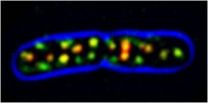(Press-News.org) In Western societies, atherosclerosis of the arteries is one of the leading causes of death. Chronic, localized inflammation of the blood vessel wall facilitates the growth of fibrous plaques, which leads to narrowing or occlusion of the vessel, and thereby promotes heart attacks and stroke. The persistence of the inflammatory reaction is due to a loss of control over the activity of the immune system. So-called dendritic cells are known to play a central role in the adaptive immune response, functioning as activators of other classes of immune cells. Their precise contribution to the pathogenesis of atherosclerosis has, however, been unclear. An international team of researchers led by Professor Christian Weber of Ludwig-Maximilians-Universität (LMU) Munich and Privatdozentin Alma Zernecke of Würzburg University has now demonstrated that dendritic cells release the chemokine CCL17 as a signal molecule, which inhibits a feedback mechanism that normally limits the activity of the immune system. This explains why the normally transient inflammatory response is not turned off and becomes chronic. The new study has also identified a potential antidote to the signal molecule. As Professor Weber reports, "We were able to prevent the progression of atherosclerosis using an antibody raised against CCL17." In other words, CCL17 offers a promising starting point for the development of new therapeutic strategies.
(Journal of Clinical Investigation, 1 June 2011)
Atherosclerosis can become manifest in various ways. In particular, plaques may suddenly rupture, promoting the formation of a clot that occludes the vessel. If this afflicts the vessels of the heart or brain the result is a heart attack or a stroke. The narrowing of vessels caused by plaque growth can also lead to reduction of the blood supply to the lower limbs and to so-called vascular dementia. Atherosclerosis is initiated by lipid accumulation that occurs directly beneath the inner lining of the blood vessel, and can induce and chronically perpetuate an inflammatory response. Cells of the immune system migrate to the site of the primary lesion and release signaling molecules that attract other types of immune cells which facilitate plaque formation. The atherosclerotic plaques in turn serve as sources of additional signals and mediators, the inflammation reaction gets out of control and continues unchecked, and plaque growth progressively obstructs the flow of blood.
So-called dendritic cells are responsible for determining the targets against which the immune response is directed. They do so by using fragments of target-specific proteins displayed in a molecular complex on their surfaces to activate immune cells called T cells. The T cells have highly variable receptors that enable them to recognize such complexes and to identify the intact target. "Dendritic cells are detectable in arteries and in atherosclerotic tissue, but their precise function in the pathogenesis of plaques has been unclear," explains Weber. "We were particularly interested in learning more about the role of the chemokine CCL17 - a signal protein that is specifically synthesized by mature dendritic cells - in the activation of T cells and in regulating T cell homeostasis."
For their experiments the researchers made use of a transgenic mouse strain in which the gene for CCL17 had been replaced by a DNA sequence encoding the genetic information for the Green Fluorescent Protein (GFP). Thus, in this strain, GFP acts as a proxy for CCL17-producing cells. Since GFP can be visualized by virtue of its fluorescence, the team was able to determine where CCL17-producing cells would normally congregate. This approach also allowed them not only to work out the effects of the lack of CCL17, but also to use advanced methods of microscopy, in particular multiphoton microscopy, to follow how the dendritic cells intrude and accumulate in atherosclerotic plaques and interact with T cells.
In further experiments, the researchers destroyed the T cells of normal mice and replaced them with T cells from the CCL17-deficient mice. Conversely, regulatory T cells were specifically removed from CCL17-deficient mice. "The results of these investigations led us to conclude that CCL17 drives atherosclerosis by inhibiting an important regulatory circuit that acts to restrain the immune response," says Weber. Under normal circumstances, immune reactions are attenuated by regulatory T cells (Tregs) that inhibit other types of immune cells and so ensure that the whole system returns to a balanced state. The new study shows that, in the presence of CCL17, fewer Tregs in the inflamed tissue are activated. In effect, CCL17 disables the Treg-dependent braking mechanism.
"This finding makes CCL17 a promising target for new therapeutic approaches," says Weber, who is anxious to ensure that the results of basic research are transferred as quickly as possible into the clinical setting and find practical medical application. In this case, the first step has already been taken. Using an antibody against CCL17, the authors of the new study were able to block the action of the signal and prevent the progression of atherosclerosis. CCL17 therefore offers a possible handle for new approaches to treatment of the condition. In the next step, Weber and his colleagues hope to clarify the function of the CCL17 receptors on the plasma membrane of the regulatory T cells. (göd)
INFORMATION:
Publication:
CCL17-expressing dendritic cells drive atherosclerosis by restraining regulatory T-cell homeostasis in mice
C. Weber, S. Meiler, Y. Döring, M. Koch, M. Drechsler, R.T.A. Megens, Z. Rowinska, K. Bidzhekov, C. Fecher, E. Ribechini, M.A.M.J. van Zandvoort, C.J. Binder, I. Jelinek, M. Hristov, L. Boon, S. Jung, T. Korn, M.B. Lutz, I. Förster, M. Zenke, T. Hieronymus, T. Junt, A. Zernecke. Journal of Clinical Investigation, 2011;121(7).
doi:10.1172/JCI44925
Contact:
Professor Dr. med. Christian Weber
Institute of Prophylaxis and Epidemiology of Cardiovascular Diseases
Medical Center of the University of Munich
phone +49 89 5160 4350
Email: kreislaufinstitut@med.uni-muenchen.de
END
TORONTO, Ont., June 3, 2011—Hospitals that provide quality care for young people do not always provide the same quality care for the elderly, a new study has found.
As our population ages and requires more healthcare, hospitals need to measure the quality of care they provide for the over 65s and implement programs to meet their distinct needs, said the study's author, Dr. Avery Nathens, trauma director at St. Michael's Hospital.
The study, published in the June issue of the Journal of the American College of Surgeons, evaluated the condition of elderly patients 30 ...
(Boston) - Boston University School of Medicine (BUSM) researchers have found that Gabapentin, (trade name Neurontin) a medication commonly used to treat neuropathic pain, seizures and biopolar disease in older and elderly patients, seems to have a higher incidence of anorgasmia, or failure to experience orgasm, than previously reported. This study appears in the current issue of the American Journal of Geriatric Pharmacotherapy.
Anticonvulsants are the fastest growing prescribed medication in the baby boomer generation. In patients 44-82 years old, anticonvulsants are ...
Almost all bacteria owe their structure to an outer cell wall that interacts closely with the supporting MreB protein inside the cell. As scientists at the Max Planck Institute for Biochemistry and at the French INRA now show, MreB molecules assemble into larger units, but not - as previously believed – into continuous helical structures. The circular movement of these units along the inside of the bacterial envelope is mediated by cell wall synthesis, which in turn requires the support of MreB. This mutual interaction may be a widespread phenomenon among bacteria and opens ...
INDIANAPOLIS – A new research study investigates the challenges that pen and paper workarounds or computerized communication breakdowns pose to the use of electronic health records. Understanding these challenges may lead to improved coordination of care supported by health IT.
Focusing on referrals by primary care physicians to specialists and communications from the specialists back to the referring physician, "Paper Persistence, Workarounds, and Communication Breakdowns in Computerized Consultation Management" appears in the July 2011 issue of the International Journal ...
In data presented at The American Society of Clinical Oncology (ASCO) Annual Meeting, cancer researchers found that the brain tumor vaccine HSPPC-96 for treating recurrent gliobastoma (GBM) has a favorable safety profile and extends survival by two to three times more than the current median survival rate. Patients in the study, conducted at University Hospitals Case Medical Center, University of California, San Francisco and Columbia University, were found to have a median survival of 11 months compared to current three to five month survival.
"The findings are very ...
Due to increasing international demand, MedWOW greatly expanded its operations by launching a Global Franchise Program. MedWOW's Franchise Program screens qualified medical equipment professionals throughout the world, in order to find the best representatives to join the MedWOW brand and offer the website's services in their defined territory.
The franchise program offers reputable key-players in the medical equipment industry the opportunity to expand their existing business, by giving them the rights to market MedWOW to end-users in their territories, including: ...
Sexual pleasure among young adults (ages 18-26) is linked to healthy psychological and social development, according to a new study by researchers at the Johns Hopkins Bloomberg School of Public Health. The study is the first to use a representative population sample of heterosexuals to find a relationship between key developmental assets and sexual pleasure. The findings are published in the June 2011 issue of The Journal of Adolescent Health.
The research study examined data from 3,237 respondents ages 18 to 26 from the National Longitudinal Study of Adolescent Health, ...
Scientists at the National Institute of Allergy and Infectious Diseases (NIAID), part of the National Institutes of Health, have demonstrated why certain immune cells chronically exposed to HIV shut down, and how they can be reactivated.
Healthy B cells have a balanced mix of surface proteins that the immune system can use, like the gas pedal and brake of a car, either to activate the cell or to damp down its activity. However, in people with long-term HIV infection who have not begun antiretroviral therapy, their B cells—responsible for producing anti-HIV antibodies—display ...
Los Angeles, Calif., June 2, 2011—Researchers in the Keck School of Medicine of the University of Southern California (USC), together with scientists in Beijing, China, have discovered a chromosomal mutation responsible for a very rare condition in which people grow excess hair all over their bodies. Investigators hope the finding ultimately will lead to new treatments for this and less severe forms of excessive hair growth as well as baldness.
The study, "X-linked congenital hypertrichosis syndrome is associated with interchromosomal insertions mediated by a human-specific ...
CHICAGO — Customizing targeted therapies to each tumor's molecular characteristics, instead of a one-size-fits-all approach by tumor type, may be more effective for some types of cancer, according to research conducted by The University of Texas MD Anderson Cancer Center.
MD Anderson's Phase I findings were presented today on the opening press program of the 47th Annual Meeting of the American Society of Clinical Oncology. Apostolia-Maria Tsimberidou, M.D., Ph.D., associate professor in MD Anderson's Department of Investigational Cancer Therapeutics, and the study's principal ...



